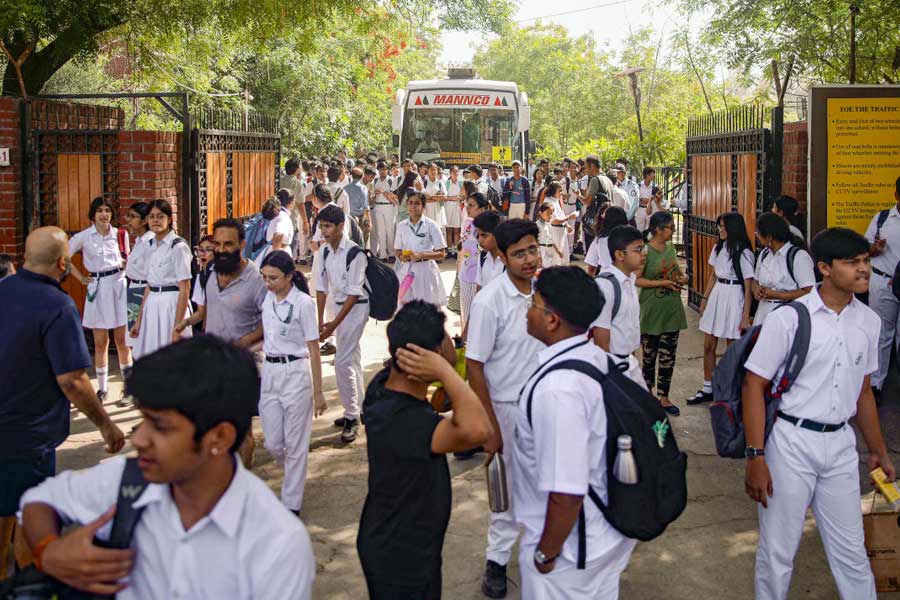Now that I have spent over 50 years in school education, I feel like writing a ‘Then and Now’ piece that old people so love. When we were young, we used to tire of the stories by ‘old people’ that invariably began, “In our times…” and we youngsters groaned, “There they go again!” Nevertheless, we listened politely to the same story for the umpteenth time. Such stories were always about how their world was superior to ours. But I remember that the examples they gave of the wonderful times they had did not impress us much.
The shoe is now on the other foot. And I often hear people much younger than me beginning their observations with exactly the same words, “In our times…”, implying the deterioration of society over the years. I certainly do believe that progression in time does not always result in civilisational progress — we lose some and we gain some. Innumerable things have seen a sea change for the better over the last five decades. But I will dwell on some aspects of urban school education that have not improved. For instance, I do not think that the student-teacher relationship in the senior classes has changed much. Perhaps children are less formal with their teachers today but they are still wary of arguing with them or even asking them complicated or existential questions. Students adore or dislike their teachers but most are still inhibited in their presence. Of course, there are always exceptions.
Parents in those days left their children’s character-building largely to the school. They trusted the school to nurture their children in the right way and seldom interfered. In a perverse way, boys bragged about the caning they received from their headmaster but girls, except for a few brazen ones, largely resented any punishment meted out to them. However, it is a relief that corporal punishment is now banned in school.
Today’s parents like to be involved in everything that their offspring do in school and rush to their defence if they are reprimanded and even take up their children’s battles against their peers, often escalating them to their respective parents. The mothers’ WhatsApp group is another source of (mis)information and unrest. Happenings in class, a teacher’s ‘objectionable’ conduct and certain students’ behaviour are discussed on this platform, resulting in an unhealthy environment in the class concerned. Indirectly encouraged, children soon learn to tell tales about their teachers and peers and when parents give these undue importance, children find it convenient to blame their teachers and other factors for all their problems. I wonder why parents do not discuss these matters with their schoolteachers or authorities and get a clearer picture of the real scenario. Talking within internal groups cannot resolve matters — it just vitiates the atmosphere.
Children today are extremely fragile and are inclined to fall apart at the slightest criticism or rebuke. We have observed that children are just not capable of accepting feedback in a sensible way nor can they respond to any kind of setback in a robust manner. It is very difficult for teachers to discipline children. Instead of building their children’s resilience, parents keep blaming teachers for hurting their children’s sentiments. And they seek psychotherapy at the drop of a hat.
The other serious development over the years (and I am not assigning any blame to anyone — just stating my perception) is that most children have lost the ability to study independently or take responsibility for their own studies. Senior students tell me that they study only with their coaching groups and private tutors. This is the age of high scores, preparing for competitive exams and tutors — not of intellectual curiosity and independent research. We adults do not allow children to think for themselves, question age-old ideas or beliefs, ask questions outside of their syllabus or even pursue their real interests.
Our children are brighter than ever: compassionate, adventurous, affectionate with discerning minds. All they need is appropriate guidance and wise counsel. Let us focus on the quality of education instead of being ‘examination warriors’.
Devi Kar is director, Modern High School for Girls, Calcutta










